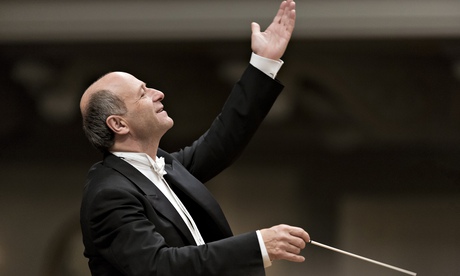
Brahms has dominated Iván Fischer’s programmes with the Budapest Festival Orchestra on their recent visits to the UK, and they closed their latest concert with the First Symphony, in a performance of considerable power and insight. Fischer’s way with Brahms – grand in manner, deploying colossal forces – has not always been universally persuasive, and when he and the BFO brought the Third and Fourth symphonies to the Proms last year, concerns were raised that the orchestral density obscured the music’s muscularity.
The First, however, benefits enormously from his epic approach. The insistent authority of the opening statement, its pedal point ground out by eight double basses, ushered in an allegro at once fraught with tension and remorseless in its logic, while dark strings and intense woodwind gave the andante a tragic edge. The tension dipped momentarily in the finale’s long introduction, but when the famous Beethovenian melody swung into action, the momentum was irresistible and the closing pages superb in their elation and weight.
Mozart formed the first half of the programme, which opened with a rather mannered account of the overture to Die Zauberflöte, the masonic chords protracted rather than solemn, the allegro curiously pressured. It was followed, however, by Piano Concerto No 9, K271, the “Jeunehomme”, with Maria João Pires as soloist, which was well nigh perfect in its grace and depth. Pires’s finesse and subtlety in Mozart have been matched by few. The orchestral playing was impeccably refined, with a marvellous sheen on the strings. Pires gave us Schumann’s Vogel als Prophet as an exquisite encore. At the end of the evening the BFO, for their party piece, formed themselves into a choir for Brahms’s Es Geht ein Wehen Durch den Wald, sung with deep feeling, if strained in the tenor line.

